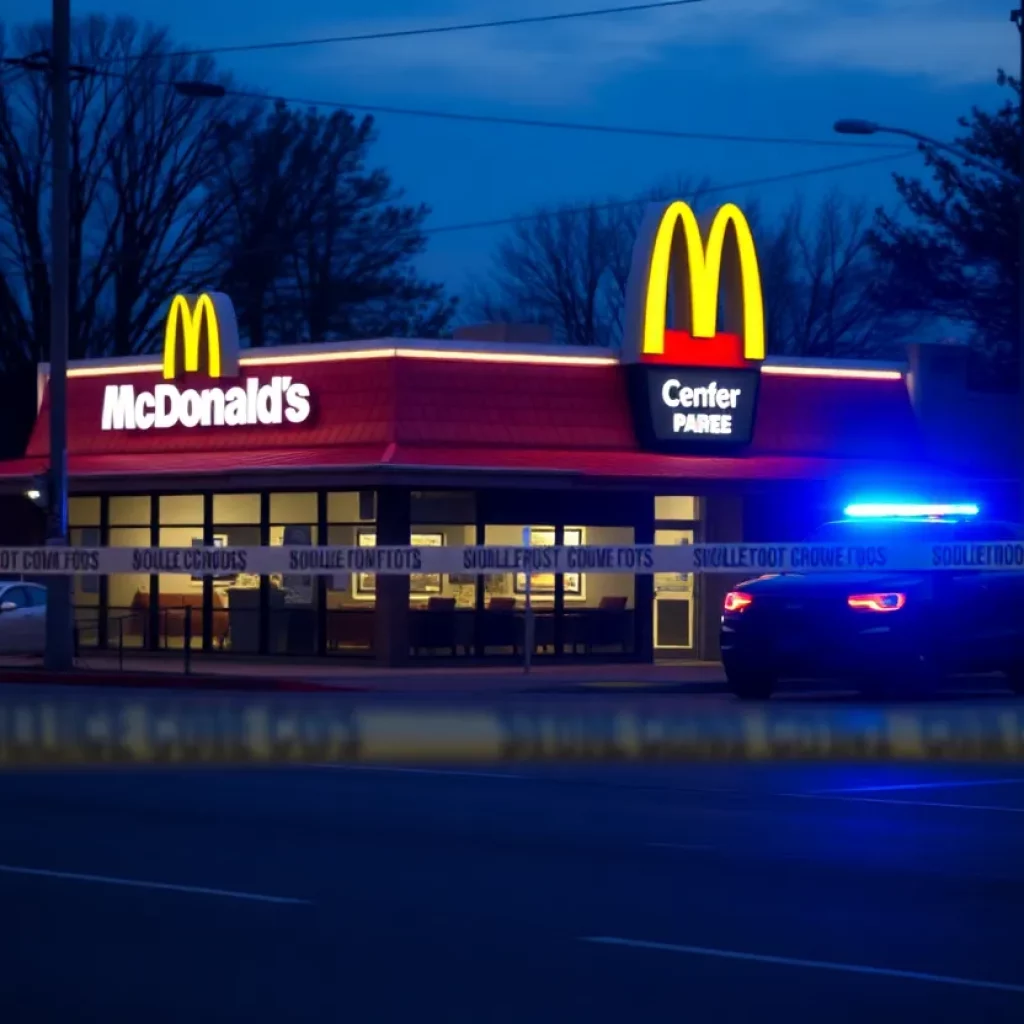News Summary
The shooting death of 18-year-old Caleb Quick in Clovis, California, has ignited a legal battle as 16-year-old Byron Rangel faces murder charges. Allegations of misconduct surrounding Quick complicate the case, raising difficult questions about accountability and community behavior. As hearings approach, discussions about consent and legal ramifications deepen, affecting the lives of the youth involved and their community.
Tragic Shooting Sparks Controversy and Legal Battle in Clovis
The killing of 18-year-old Caleb Quick outside a McDonald’s in Clovis, California, on April 23, has sent shockwaves through the community and unveiled layers of legal complexities as a murder charge is levied against a 16-year-old boy.
Murder Charges and Allegations of Misconduct
Authorities have charged Byron Rangel, a 16-year-old, with the murder of Quick. With the trial looming, Rangel’s attorney has suggested a potentially incendiary motive, alleging that Quick was involved in multiple incidents of sexual misconduct that led to provocation. This suggestion has painted a contentious portrait of Quick’s character and has raised questions about how such actions may have ultimately led to violence.
Allegations Surface of Disturbing Behavior
Baring a troubling backdrop, the defense claims that Quick’s behavior included episodes of sexual misconduct, prompting speculation around the community’s sentiments toward him. A crucial piece of evidence presented is an unsettling video allegedly discovered on Quick’s phone. Dated April 14, the disturbing footage reportedly shows Quick engaging sexually with a girl who later claimed she blacked out and did not recall consenting. Discovery of such a video raises questions about the environment surrounding the young men and women in the community.
Community Awareness and Prior Incidents
Rangel’s defense emphasizes that members of the community were aware of Quick’s alleged troubling behavior and felt compelled that “someone needed to take action.” Reports indicate that law enforcement has uncovered at least two other similar incidents implicating Quick in misconduct against young women.
Friends of Quick have also provided alarming insights, recounting instances where they experienced troubling behaviors, including being pressured into sexual activities and physical intimidation such as slapping. Such accounts have ignited discussions about digital evidence and the responsibility of young individuals in their social interactions.
Details of the Fatal Encounter
The tragic shooting unfolded on a typical evening at McDonald’s, around 8:56 p.m., as Quick approached his vehicle. Surveillance footage revealed Rangel tracking Quick for over 13 minutes before pulling the trigger. Shortly after the incident, Rangel and his girlfriend fled the scene in a white Tesla.
Legal Proceedings and Court Appearances
Following the shocking incident, Rangel and his girlfriend surrendered to authorities on May 10, more than two weeks post the reported shooting. Initially detained, Rangel appeared in juvenile court for a hearing aiming for his release; however, prosecutors described the shooting as a public “execution,” arguing against Rangel’s release and stating that it posed a significant threat to the community. The judge ultimately ordered him to stay in juvenile hall pending further proceedings.
The legal ramifications Intensified when Rangel’s defense attorney posited that the situation could be interpreted differently through the lens of provocation, suggesting that the circumstances surrounding the incident were not likely to recur.
Next Steps in the Legal Saga
As of now, Rangel’s next court hearing is scheduled for July 8, where key questions surrounding his charges will be scrutinized in depth. Meanwhile, his alleged accomplice, Casandra Michael, faces her own legal scrutiny with appearances slated for June 18 and a follow-up hearing on June 23.
Consequences and Implications for Young Lives
The tragic death of Caleb Quick has unveiled more than just a murder charge; it reopens discussions on issues of consent, accountability, and the complexities of young lives engulfed in allegations of serious misconduct. Should Rangel be convicted as an adult, he could face life without the possibility of parole; however, as a juvenile, he remains eligible for a sentence of up to seven years or until reaching age 25.
As the investigation unfolds, the layers of this tragic story reveal a community grappling with intense emotions, legal implications, and the urgent call for discussions on behavior, consent, and accountability among its youth.
Deeper Dive: News & Info About This Topic
HERE Resources
Additional Resources
- Fresno Bee: Clovis Shooting Case
- Action News: Clovis McDonald’s Shooting
- GV Wire: Shocking Allegations in Clovis Shooting
- Wikipedia: Consent
- Encyclopedia Britannica: Sexual Assault
Author: STAFF HERE CHARLESTON
The CHARLESTON STAFF WRITER represents the experienced team at HEREcharleston.com, your go-to source for actionable local news and information in Charleston, Charleston County, and beyond. Specializing in "news you can use," we cover essential topics like product reviews for personal and business needs, local business directories, politics, real estate trends, neighborhood insights, and state news affecting the area—with deep expertise drawn from years of dedicated reporting and strong community input, including local press releases and business updates. We deliver top reporting on high-value events such as the Spoleto Festival USA, Charleston Wine + Food Festival, and the MOJA Festival. Our coverage extends to key organizations like the Charleston Metro Chamber of Commerce and the Charleston Museum, plus leading businesses in tourism and maritime industries that power the local economy such as South Carolina Ports Authority and the Charleston Visitor Center. As part of the broader HERE network, including HEREaiken.com, HEREbeaufort.com, HEREchapin.com, HEREcharleston.com, HEREclinton.com, HEREcolumbia.com, HEREgeorgetown.com, HEREgreenwood.com, HEREgreenville.com, HEREhiltonhead.com, HEREirmo.com, HEREmyrtlebeach.com, HEREnewberry.com, HERErockhill.com, HEREspartanburg.com, HEREaustin.com, HEREcollegestation.com, HEREdallas.com, HEREhouston.com, and HEREsanantonio.com, we provide comprehensive, credible insights into South Carolina's dynamic landscape.










